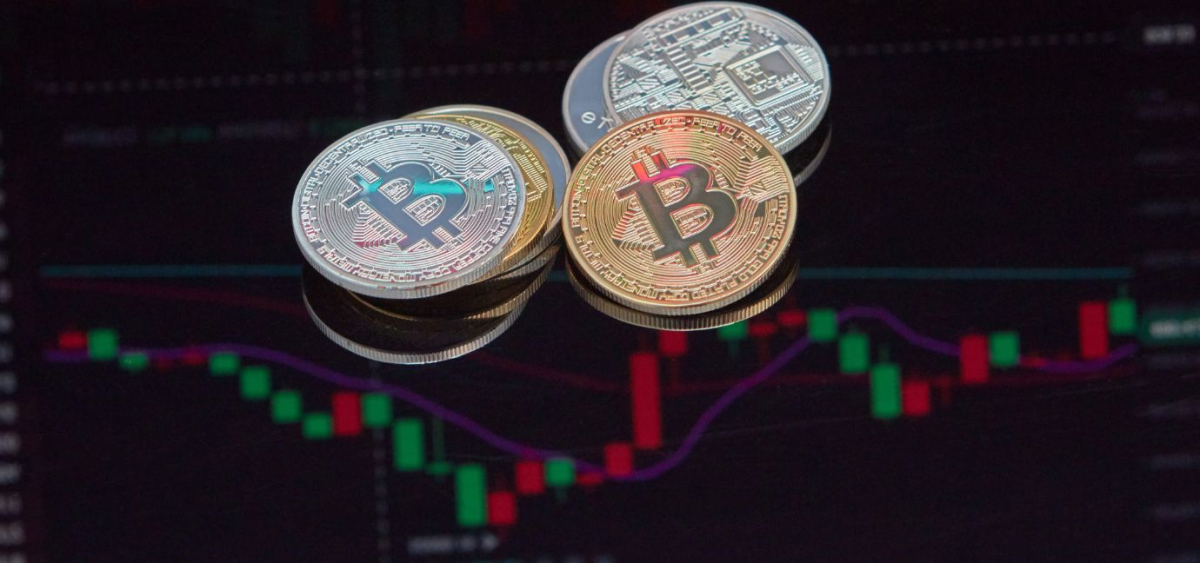Investing in cryptocurrency goes beyond simply jumping on a platform and exchanging your Canadian dollars for digital assets. Choosing the right exchange requires careful consideration of factors like security, trading fees, available cryptocurrencies, user experience, and regulatory compliance.
This guide explores 17 of the best crypto exchanges in Canada for April 2024, empowering you to make informed decisions for your crypto journey.
Top Picks for Beginners and Experienced Traders:
- Bitbuy (Editor’s Choice): A frontrunner in the Canadian crypto space, Bitbuy boasts a user-friendly interface, a vast selection of over 40 coins (including popular choices like Ethereum, Bitcoin, and Litecoin), and competitive trading fees ranging from 0% to 2% depending on the account tier.
Fiat deposits are free, making it an attractive option for beginners. Security features include 90% cold storage and 2FA to safeguard user assets. Bitbuy caters to advanced traders as well, offering features like staking and an OTC desk for large trades. New users can enjoy a $50 welcome bonus upon making a minimum initial deposit of $250. - VirgoCX: Launched in 2018, VirgoCX offers a user-friendly platform with over 60 tradable coins. Beyond crypto, VirgoCX provides access to NFT brokerage services, foreign exchange, and OTC transactions. Funding options include Interac e-transfers, wire transfers, and crypto deposits.
Trading fees range from 0.50% to 2.50%, with free fiat deposits and withdrawals. VirgoCX prioritizes security by registering with FINTRAC and employing various security measures to protect user accounts. A $20 sign-up bonus is available when you deposit $100 worth of crypto assets. - Wealthsimple Crypto: This platform is a solid option for beginners seeking a user-friendly experience. Wealthsimple Crypto supports over 50 coins and integrates seamlessly with the Wealthsimple Trade platform for stock trading.
Funding methods include bank transfers, debit cards, and external wallet deposits. A flat 2% fee applies to each transaction. Security-wise, Wealthsimple Crypto leverages Gemini for cold storage and partners with Coincover for added protection. Users can activate 2FA for an extra layer of security. A bonus awaits new users who trade at least $150+ within 30 days of registration.
Additional Options for Canadian Crypto Investors:
4. CoinSmart (Now Part of WonderFi): While new user sign-ups are paused, CoinSmart offers a compelling platform with support for various digital assets like Bitcoin, Ethereum, and Dogecoin. Funding methods include Interac e-Transfer, bank transfers, credit/debit cards, and SEPA transfers.
Trading fees are competitive at 0.20%, with additional fees for fiat deposits, withdrawals, and crypto transactions. CoinSmart prioritizes security through FINTRAC registration, cold storage, and 2FA.
5. Kraken: A globally trusted exchange, Kraken caters to both beginners and experienced traders. It offers spot and margin trading for various coins, along with crypto futures contracts, staking capabilities, and NFT trading.
Funding options include wire transfers, credit cards, ACH transfers, e-transfers, and external wallet deposits. Trading fees are volume-based, starting around 0.26% or more. Security features include cold storage, 2FA, and email confirmation for withdrawals.
6. Coinbase: A well-established global exchange, Coinbase boasts a user-friendly interface, a vast crypto selection, and global availability. However, Coinbase’s fee structure can be complex and high for small-volume traders.
Trading fees vary depending on the order size and transaction type, with fees ranging from $0.99 to 3.99% for certain transactions. Security measures include 2FA, address whitelisting, cold storage, and FDIC insurance (up to $250,000 for USD balances).
7. Crypto.com Canada: Though not headquartered in Canada, Crypto.com is accessible to Canadian residents and offers a Crypto Visa card for spending crypto and earning rewards. The platform supports over 150 coins and features staking rewards, DeFi (decentralized finance) options, and NFT capabilities. Funding methods include bank transfers, debit/credit cards, and crypto deposits.
Trading fees vary and depend on the account tier, with rates reaching up to 0.50%. Security measures include cold storage for user crypto holdings and multi-factor authentication.
8. NDAX: A well-regarded Canadian exchange, NDAX supports over 30 coins, including popular choices like Bitcoin, Ethereum, and Litecoin. NDAX offers a user-friendly mobile app for convenient trading on the go. Funding options include Interac e-Transfer, wire transfers, and bank drafts, with the additional option of crypto deposits.
Trading fees are a flat 0.20% for both buy and sell orders, with free fiat and crypto deposits. However, a flat fee applies to fiat and crypto withdrawals. Security is a priority for NDAX, with registration as a FINTRAC MSB in Canada. NDAX safeguards user fiat at a “Canadian Crown-owned financial institution” and utilizes cold storage and 2FA for account protection.
Beyond the Top Picks: Exploring Other Canadian Crypto Exchanges

- Shakepay: A long-standing player, Shakepay caters to beginners with a focus on Bitcoin and Ethereum trading. It employs a variable fee structure, so be sure to check the rates before making a trade. New users can get a $5 welcome bonus.
- Netcoins: This exchange supports over 30 digital currencies and charges a 0.50% trading fee, along with a hidden spread fee.
- Coinsquare: Founded in 2014, Coinsquare offers various coins but may have less competitive trading fees compared to other options.
- Gemini: This US-based, regulated crypto exchange is also available in Canada. While secure, its fee structure might not be as attractive as other platforms listed here.
- KuCoin: A global exchange with millions of users, KuCoin offers fees up to 0.1% depending on the account tier.
Binance Canada
Binance, once the world’s largest crypto trading platform, is no longer operational in Canada. Despite boasting the most extensive coin selection (over 350), along with features like crypto derivatives and staking for experienced traders, Binance Canada is no longer a viable option for Canadian crypto enthusiasts due to regulatory restrictions.
How to Trade Cryptocurrency in Canada
The process of buying and selling crypto in Canada involves opening an account with a crypto exchange. Once your identity is verified, you can fund your account using Canadian dollars (fiat) or transfer existing crypto holdings from another wallet or exchange. Many platforms accept various fiat currencies for funding. With the deposited funds, you can then purchase your desired crypto assets.
Best Practices for Crypto Trading in Canada
- Security: Choose an exchange with robust security measures like cold storage, 2FA, and account insurance (if available). Consider transferring significant crypto holdings to a secure offline hardware wallet for an extra layer of protection.
- Trading Fees: Compare fee structures across different platforms before committing. Trading fees can significantly impact your returns, so choose an exchange that aligns with your trading volume and budget.
- User Interface: For beginners, a user-friendly platform is crucial. Look for an exchange with a clear, intuitive interface that simplifies the buying and selling process.
- Regulation: While no Canadian crypto exchange currently offers CIPF (Canadian Investor Protection Fund) protection, verify if the exchange is licensed to operate in Canada and what asset protection measures they have in place.
- Customer Support: Reliable customer support is essential for addressing any issues that may arise. Check the availability and responsiveness of customer support channels before choosing an exchange.
Is Cryptocurrency Legal in Canada?
Cryptocurrency exchanges can operate legally in Canada, and you can trade crypto without violating any laws. However, cryptocurrencies are not considered legal tender in Canada.
The Canadian government provides information on its stance on cryptocurrencies https://www.canada.ca/en/revenue-agency/news/newsroom/tax-tips/tax-tips-2023/cryptocurrency.html. While crypto can currently be used for some purchases, future government regulations might impact the industry.

